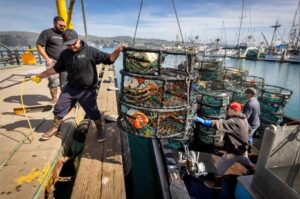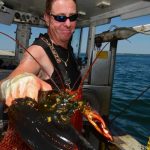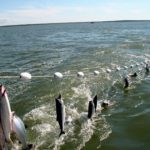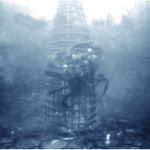Tag Archives: black gill
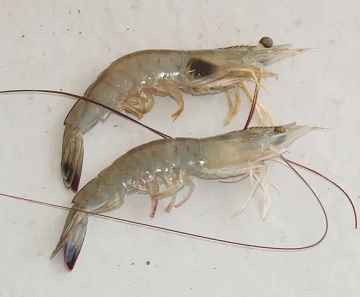
Black Gill: Shrimpers and scientists collaborate to study parasite
Georgia’s shrimpers are already facing plenty of challenges like high gas prices, inflation and international competition. But climate change is exacerbating a new problem: black gill, a parasite that is decreasing shrimp populations and is worsening with rising ocean temperatures. On Dec. 15, the University of Georgia’s Skidaway Institute of Oceanography invited shrimpers, researchers and other local stakeholders aboard the R/V Savannah to collect samples in the Wassaw Sound and discuss the current research and on-the-water observations of black gill. Black gill is a parasite that lodges itself into shrimps’ gills and feeds on that tissue. It’s a ciliate, a single-celled organism. It gets its name from the shrimp’s immune response to the invader, which turns the gills black as the shrimp’s body tries to fight off the intruder. Photos, >click to read< 10:37
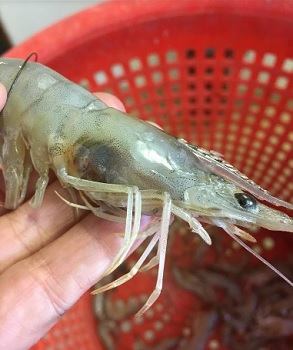
Black gill showing up early
Black gill showed up early this year in Georgia’s shrimp. The evidence came from the first trawl of a day-long research cruise out of Skidaway Institute of Oceanography on June 21. Researchers aboard the R/V Savannah lowered the net in the commercial fishing grounds just off of Wassaw Island and pulled up a catch so disappointingly small it could fit in a backpack. But among the dozen fish and handful of starfish were two brown shrimp. And one was inky black around its gills. “It’s really early,” said University of Georgia graduate student Megan Tomamichel, as she examined the shrimp. “But we’ve had a lot of warm weather.” >click to read< 12:09
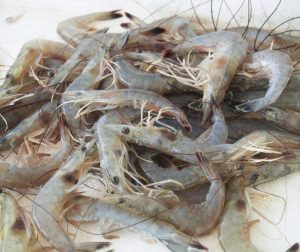
UGA researchers dive into a sea of questions
Captain Wynn Gale knew it was bad. He’d been commercial fishing off the coast of Darien, about 50 miles south of Savannah, since he was 12, and his decades of shrimping told him the industry was in trouble. Again..,,, But this time, off the coast of Georgia in the 1990s, there weren’t as many shrimp to catch, and the ones Gale and other commercial fishermen were pouring onto the decks of their boats had something wrong with them. They weren’t flopping around like normal; in fact, they barely moved. And their gills were black, a stark contrast to the milky clear color of Georgia’s famously sweet white shrimp. >click to read<09:43
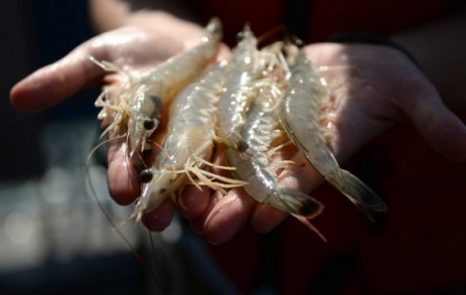
Savannah scientists continue study of black gill in shrimp
As the Research Vessel Savannah moved slowly along Georgia’s coast in early October, Wynn Gale calmly arranged about a dozen shrimp on a table inside one of the boat’s laboratories. He inspected each specimen for dark gill coloration, and then he took a photo of the shrimp on his smartphone. Black gill, named because of a telltale dark coloration on shrimps’ gills, is caused by a microscopic parasite. Scientists have determined that the parasite is a ciliate, a single-cell organism, but have yet to identify the specific type. Scientists say shrimp suffering from black gill are safe for humans to eat. click here to read the story 08:53
Research reveals black gill kills shrimp
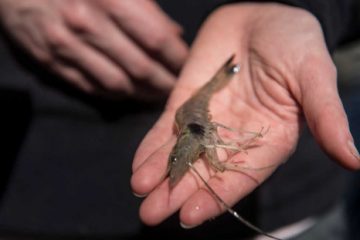 A disease that’s crippling the shrimp industry may be doing more damage than originally thought. Researchers in our region have made new findings about black gill disease, this as the industry is still rebounding from the worst shrimp harvest in Georgia history. The latest findings from scientists with the University of Georgia’s Skidaway Institute of Oceanography is unsettling. It reveals black gill may continue to push the shrimp industry into the red. “We’ve observed in controlled laboratory situations, mortality events, death of shrimp, that could only be caused by them having black gill. We’ve removed all other predators, uh, we have control groups where they don’t die, so it’s not something else in the water, but the ones with the black gill are dying.” said Dr. Marc Frischer with the UGA Skidaway Institute of Oceanography. Video, read the story here 08:58
A disease that’s crippling the shrimp industry may be doing more damage than originally thought. Researchers in our region have made new findings about black gill disease, this as the industry is still rebounding from the worst shrimp harvest in Georgia history. The latest findings from scientists with the University of Georgia’s Skidaway Institute of Oceanography is unsettling. It reveals black gill may continue to push the shrimp industry into the red. “We’ve observed in controlled laboratory situations, mortality events, death of shrimp, that could only be caused by them having black gill. We’ve removed all other predators, uh, we have control groups where they don’t die, so it’s not something else in the water, but the ones with the black gill are dying.” said Dr. Marc Frischer with the UGA Skidaway Institute of Oceanography. Video, read the story here 08:58

Study aims to help Ga. and S.C. shrimpers weather black gill
There’s no quick fix for black gill, a disease that affects shrimp from Florida to North Carolina. But as regulators and scientists collaborate with fishermen to work on the problem, they’ve already boosted an iconic coastal tradition. “Generally, we’re seen as the bad guys, the ones that kill the turtles and rape the ocean,” said Micah LaRoche, a third generation shrimper from Wadmalaw Island. “I’m anything but that. I have grandchildren looking to get into the business. As far as conservationists go you’ll never find another one like me.” Read the rest here 07:34
South Carolina and Georgia shrimpers brace for black gill
 While Lowcountry shrimpers have seen little of their catch infected with black gill disease this year, scientists say it’s only a matter of time. The infection, which causes dark spots to appear on the midsection of shrimp, is not dangerous to humans. It remains somewhat of a mystery to scientists and shrimpers, but some of them blame it for reduced shrimp population in recent years. Charles Gay of Gay Fish Company on St. Helena Island said his shrimpers began seeing black gill this week. Read the rest here 13:24
While Lowcountry shrimpers have seen little of their catch infected with black gill disease this year, scientists say it’s only a matter of time. The infection, which causes dark spots to appear on the midsection of shrimp, is not dangerous to humans. It remains somewhat of a mystery to scientists and shrimpers, but some of them blame it for reduced shrimp population in recent years. Charles Gay of Gay Fish Company on St. Helena Island said his shrimpers began seeing black gill this week. Read the rest here 13:24





































